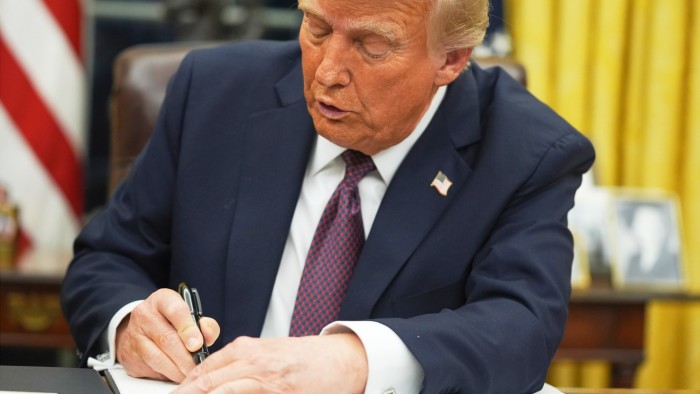Unlock the White House Watch newsletter for free
Your guide to what Trump’s second term means for Washington, business and the world
Dying just got cheaper for wealthy Americans. Following the passing of Donald Trump’s landmark tax bill last week, only those with assets of more than $15mn will be subject to the federal estate tax — often known as the “death tax” by those who would rather not be subject to it. For couples, the allowance is $30mn.
The rise in that threshold over time is testament to the skill with which the well-heeled work the US political system. At the turn of this century, an American did not even need to be a millionaire to face the death tax. In 2001, the exemption level was just $675,000. The newly calibrated level thus gives an implied, annualised growth rate of nearly 15 per cent, well above inflation. Compared with the UK, it is extraordinarily generous.
Relaxing estate taxes is, on the face of it, a bold choice for a country riven with serious wealth polarisation, a dire fiscal deficit and a colossal wealth transfer imminent as baby boomers stride deeper into their golden years. The median US life expectancy of around 80, burnished by various equity bull markets, could produce a $124tn wave of inheritance over the next 25 years, according to Cerulli Associates, a research firm.
And it will be concentrated, to put it mildly. The top 10 per cent of US households hold two-thirds of national wealth, according to the Federal Reserve Bank of St Louis. Wealth management firms — particularly roboadvisors like Betterment and Wealthfront — are clamouring to reach millennials, Gen Xers and the family offices that will belong to them.
As for the less privileged offspring, prospects are bleak. The share of wealth held by households in the bottom half of the distribution has gone from historically around 5 per cent to measured around 2.5 per cent by the end of the 2010s. A recent study from the website Bankrate found that more than 40 per cent of millennials were relying on parental financial support, often for rent.
The estate tax is not a huge revenue generator for Uncle Sam, at under $40bn, less than a percentage point of federal government revenue. Far fewer than 1 per cent of households even pay it. By way of comparison, that’s not even enough to fund the Immigration and Customs Enforcement’s new $45bn detention-centre budget.
But the impact of reducing the number of people who pay it is outsize, because it entrenches privilege and inequity across generations. Raising the threshold to $15mn will, in a subtle way, make existing wealth gaps an even more rigid feature of the economic landscape. And for those who believe in helping the rich to motivate the poor, at least it gives the 99 per cent a nice round number to focus on.
